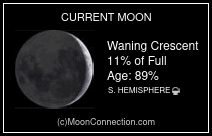Decade of increased research (1970s)
The affiliation of the Parapsychological Association (PA) with the American Association for the Advancement of Science, along with a general openness to psychic and occult phenomena in the 1970s, led to a decade of increased parapsychological research. During this period, other notable organizations were also formed, including the Academy of Parapsychology and Medicine (1970), the Institute of Parascience (1971), the Academy of Religion and Psychical Research, the Institute of Noetic Sciences (1973), the International Kirlian Research Association (1975), and the Princeton Engineering Anomalies Research Laboratory (1979). Parapsychological work was also conducted at the Stanford Research Institute (SRI) during this time.
The scope of parapsychology expanded during these years. Psychiatrist Ian Stevenson conducted much of his controversial research into reincarnation during the 1970s. Psychologist Thelma Moss devoted time to the study of Kirlian photography at UCLA's parapsychology laboratory. The influx of spiritual teachers from Asia, and their claims of abilities produced by meditation, led to research on altered states of consciousness. American Society for Psychical Research Director of Research, Karlis Osis, conducted experiments in out of body, and astral beaconing. Physicist Russell Targ coined the term remote viewing for use in some of his work at SRI in 1974. During this period, academics outside parapsychology also appeared to have a general optimism towards this research. In 1979, a survey of more than 1,100 college professors in the United States found that only 2% of psychologists expressed the belief that extrasensory perception was an impossibility. A far greater number, 34%, indicated that they believed ESP was either an established fact or a likely possibility. The percentage was even higher in other areas of study: 55% of natural scientists, 66% of social scientists (excluding psychologists), and 77% of academics in the arts, humanities, and education believed that ESP research was worthwhile. The surge in paranormal research continued throughout the 1970s and into the 1980s. By the end of the 1980s, the Parapsychological Association reported members working in more than 30 countries. Additionally, research not affiliated with the PA was being carried out in Eastern Europe and the former Soviet Union.Since the 1970s, contemporary parapsychological research has waned considerably in the United States.[ Early research was considered inconclusive, and parapsychologists were faced with strong opposition from their academic colleagues Some effects thought to be paranormal, for example, the effects of Kirlian photography, disappeared under more stringent controls, leaving those avenues of research at dead-ends.Many university laboratories in the United States have closed, citing a lack of acceptance by mainstream science as the reason, leaving the bulk of parapsychology confined to private institutions funded by private sourcesAfter 28 years of research, Princeton Engineering Anomalies Research Laboratory (PEAR) retired their laboratory in 2007. Two universities in the United States still have academic parapsychology laboratories: the Division of Perceptual Studies, a unit at the University of Virginia's Department of Psychiatric Medicine, studies the possibility of survival of consciousness after bodily death; the University of Arizona's Veritas Laboratory conducts laboratory investigations of mediums. Several private institutions, including the Institute of Noetic Sciences, conduct and promote parapsychological research. Britain leads parapsychological study in Europe, with privately funded laboratories at the universities of Edinburgh, Northampton, and Liverpool Hope, among others. Parapsychological research has also been augmented by other sub-disciplines of psychology. These related fields include transpersonal psychology, which studies transcendent or spiritual aspects of the human mind, and anomalistic psychology, which examines paranormal beliefs and subjective anomalous experiences in traditional psychological terms.














0 comments